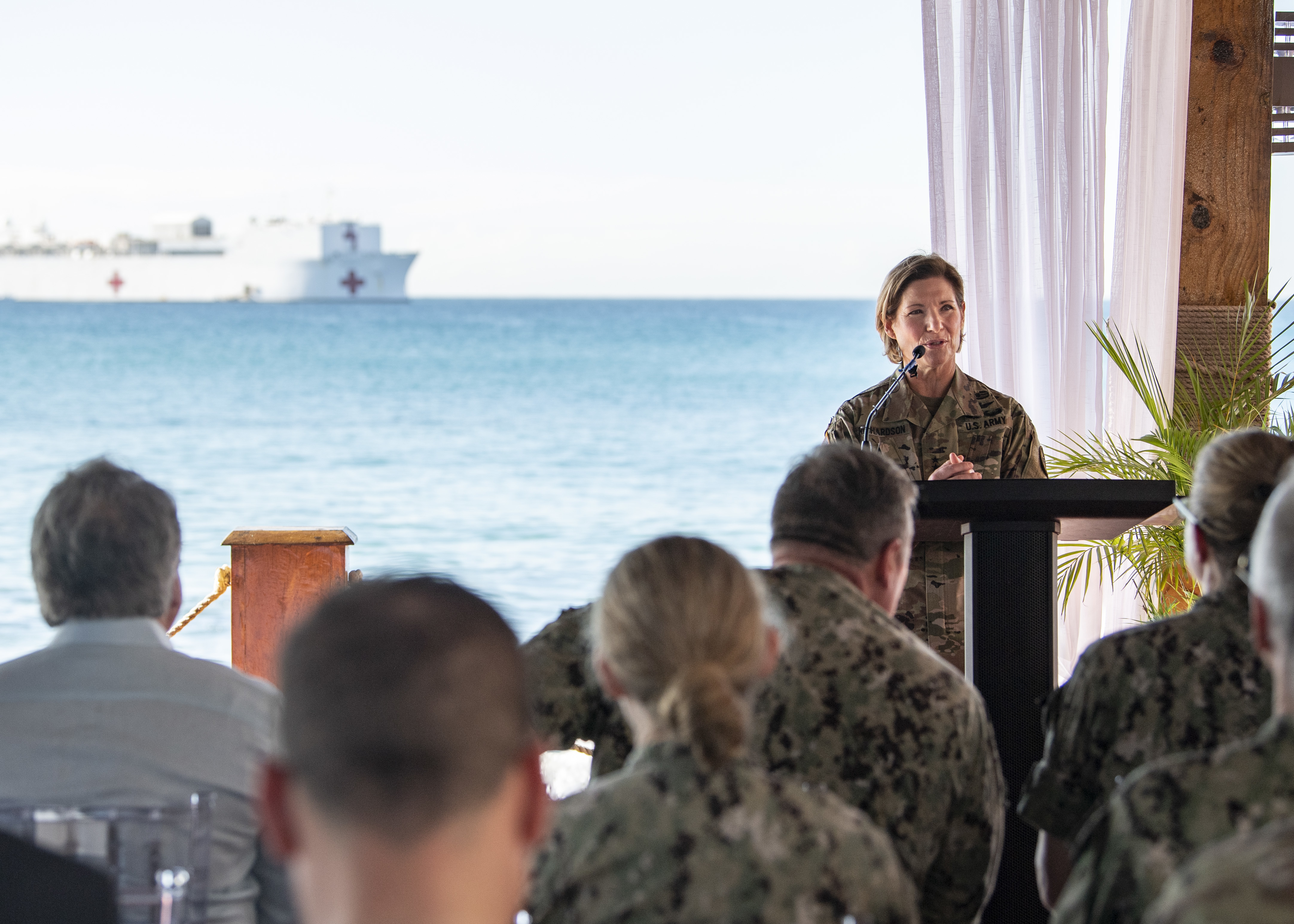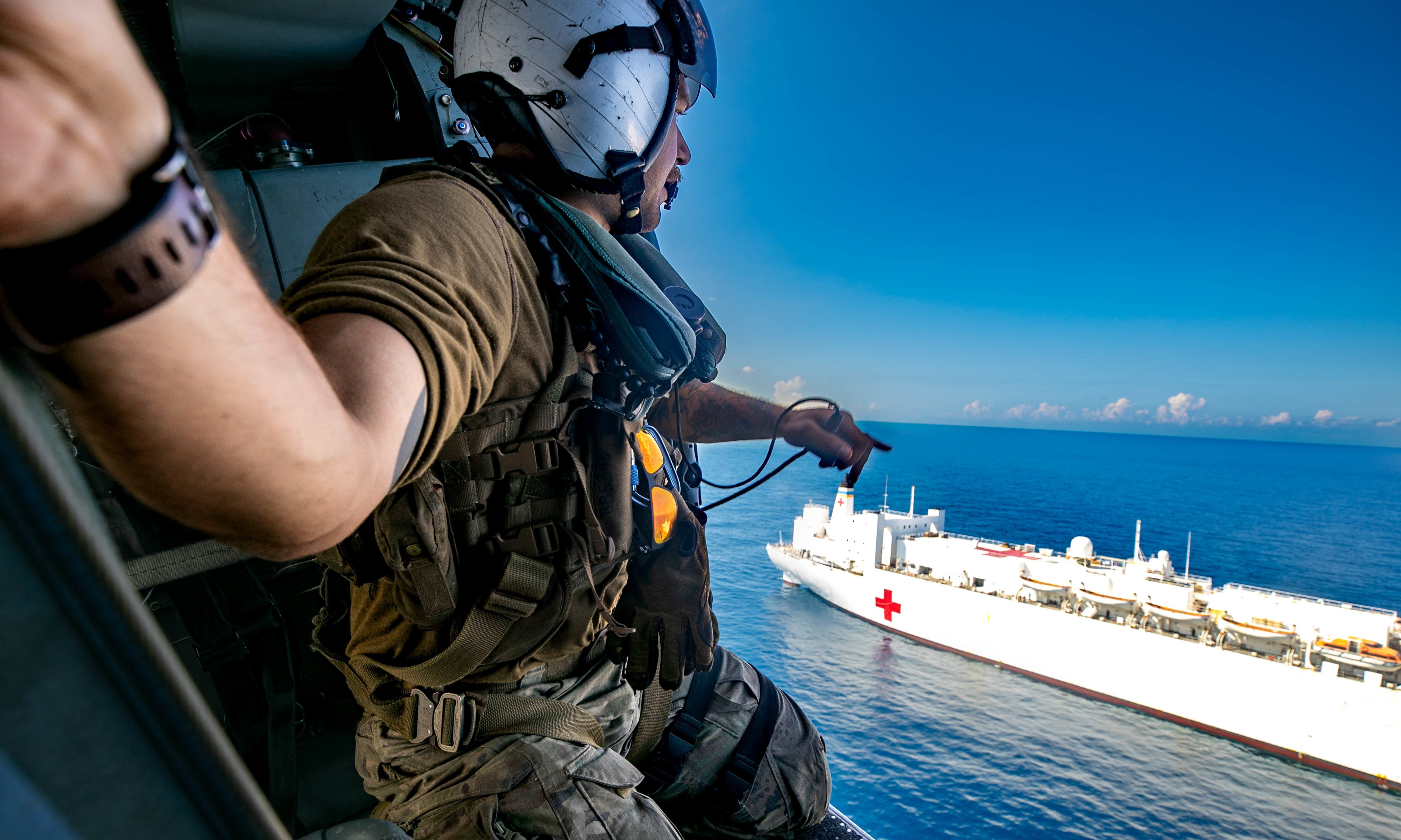
The United States is facing increased competition in a number of sectors, especially from China in the Western Hemisphere, raising new security concerns, the head of U.S. Southern Command said Thursday.
Army Gen. Lara Richardson, speaking at the Atlantic Council, questioned the People’s Republic of China’s investment in infrastructure in Central and South America.
“We see the encroachment; we see the tentacles of the PRC [People’s Republic of China] in our neighborhood,” Richardson said.
Richardson again voiced her concern that 21 of the 31 nations in the command’s area of responsibility have signed on with Beijing’s Belt and Road infrastructure initiative. Of added concern to regional security, 17 of the Chinese projects in Central and South America are in building deep-water ports. Five major infrastructure projects flank the Panama Canal.
Complicating matters, the COVID-19 pandemic has had a devastating effect on the region’s economy. Before the pandemic an estimated 107 million people in the region were living in poverty; the number now exceeds 170 million, she said.
The economic difficulties cause a number of governments in the Western Hemisphere to ask who might have the best financial deal to provide necessary development to rebuild and expand, Richardson said. Those governments are feeling a sense of urgency from their citizens that they must move ahead with building ports, airfields and highways and improving telecommunications to improve their standards of living.
Even before the pandemic, Beijing moved into the infrastructure construction arena to extend its influence in Africa and the Western Hemisphere. In some cases, she said, “there’s no one else there” bidding for the work.
For example, in the region, China’s Huawei is the dominant telecommunications provider and is proceeding to install its 5G networks to replace its existing older networks. Dual-use companies like Huawei make Richardson worry, she said.
The United States warned for years the company’s close ties to the Chinese government pose serious risks to nations’ security and intelligence cooperation.
Chinese investments in mining operations particularly in the “lithium triangle” of Bolivia, Chile and Argentina and copper in Peru also pose an issue, she said. Lithium is critical for the manufacture of batteries, demand for which has rapidly expanded as the auto industry transitions from fossil fuels to electric propulsion.
At the same time as China’s increased involvement in infrastructure, Beijing has undertaken the largest military build-up of its conventional and strategic forces in history.
China is the region’s number one trading partner, followed by the United States. The country relies on Central and South America for 36 percent of its food supply, she said.
“We need to step up our game,” Richardson said. Later, she added, “we’re not investing in the region as we could be or as should be.”
Organized criminal activity in the region is a $310 billion-a-year business that has grown beyond narco-trafficking to include illegal mining, lumbering, and fishing as well as human trafficking. In addition, transnational criminal cartels are actively involved in money laundering, sometimes using branches of Chinese banks.
As regional governments put more and more responsibility on their security forces to counter widespread and growing criminal activity, they have turned more often to their militaries to augment police, Richardson said.
“You can’t just go after the eaches; you have to go the sources,” she said. “That’s at the top of [those governments’] lists” of what must be done.
For its part in this effort, the command has increased training that emphasizes human rights, the rule of law and the professionalization of their military, Richardson said
Key parts of that professionalization comes in developing a functioning, effective noncommissioned officer corps and the important role women can play in a nation’s armed forces, as had been the care in Ukraine, Richardson said.
The amount of Pentagon resources devoted to Southern Command “forces us to work other levers that our competitors don’t have.”

Using hospital ship USNS Comfort’s (T-AH 20) Continuing Promise Deployment last year to six Caribbean and Central American nations to illustrate one of the “levers,” Richardson said.
She said the ship takes aboard medical students to provide real-life experiences to their education, sets up clinics to treat sick and injured patients in coliseums, warehouses and remote villages. The medical staff also provides needed surgeries aboard ship while technicians go ashore to repair broken medical equipment.
Comfort’s medical staff also conduct table-top exercises with their counterparts in the best ways to respond to natural disasters and crises like the pandemic.
She also cited the strong partnership programs between state National Guard units and 24 countries in professionalizing the armed forces.
In addition to on-the-scene training and American military schools open to foreign armed forces, the command participates in large continuing exercises, like UNITAS, a naval exercise that is in its 69th year. Twenty nations participated last year.
As for Russia, Richardson said Moscow has stepped up its disinformation campaign through outlets like RT, its cable network, to influence national politics, but its possible ambitions to base forces in the Western Hemisphere has stalled in wake of its invasion of Ukraine.
Richardson said that Russia remains a key partner with Cuba, Venezuela and Nicaragua for political support and military sales.
Sanctions placed on the Kremlin for its aggression, however, have dried up its ability to send spare parts to nations that had bought Russian military hardware in the past, opening a door for the United States to equip the neighboring militaries.
Nations “see what we do in Ukraine,” proving the United States is a reliable partner in providing security and economic development, Richardson said.





